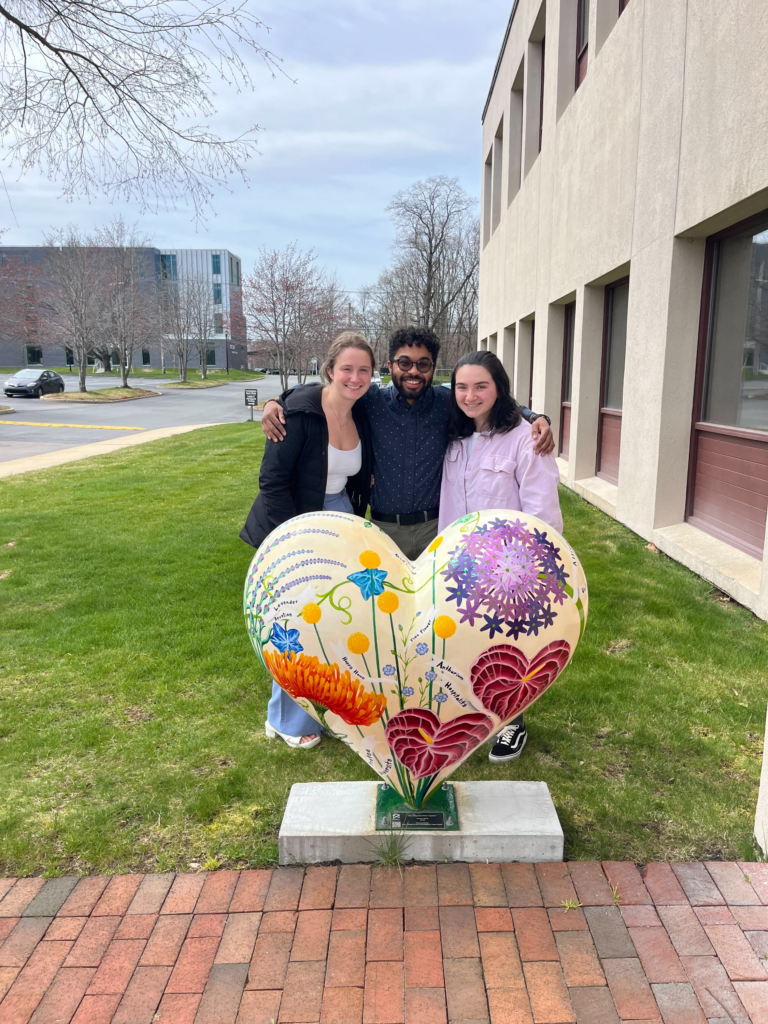Aaron Wright ’24: Contributing to Heart and Brain Health at the Framingham Heart Study
For Aaron Wright ‘24 the call for Christians to love God with all their heart and mind has a physicality to it. He spent the last two semesters interning at one of the National Institutes of Health’s most impactful endeavors for heart and brain health in Massachusetts: the Framingham Heart Study (FHS). A newly minted Gordon graduate and a former Pike Honors student, Wright interned in the neuropsychology department, assisting with research on the symptomatology of cognitive dementia to help patients counter cognitive decay.
“It was an incredible opportunity to be in an environment where people were passionate about research and about contributing to helpful scholarly literature,” Wright said. “Just being able to exist in that space and be a part of such an inspiring study…it’s not something I’ll forget anytime soon.”
The Impact of FHS Health
FHS started 75 years ago as a long-term study in heart health. The project has been following families through several generations in the town of Framingham, MA, thanks to the willingness of the participants to invest in the study and keep it going. As part of the study, researchers conducted tests on risks for heart health, which have produced seminal discoveries and benefited healthcare professionals across the country. Research milestones include finding obesity as a risk factor for heart failure and calculating a coronary disease prediction algorithm that allows physicians to predict coronary heart diseases in patients. FHS researchers’ work on blood pressure and hypertension was recognized by the American Heart Association as a top cardiovascular research achievement.
In the last several years, the FHS study expanded to explore the connections between heart health and brain health. For example, researchers discovered how high leptin levels can protect against Alzheimer’s disease and dementia and how parental dementia may lead to poor memory in middle-aged adults. Currently, scientists with the Brain Aging Program within the FHS are conducting an in-depth dementia review to establish a deeper understanding of the presenting symptoms of cognitive dementia. This was the project Wright became involved with as an intern.
Working in the FHS

During his internship Wright reported to Julie Joyce, Emma Müller and Eilis Reardon, senior research assistants (SRAs) and specialists, to help with data collection for the study. One of Wright’s most important tasks was organizing test batteries for the participants in the dementia study. These patients were usually Framingham residents in their 50s and 60s who volunteered to help by coming to the FHS main campus in Framingham.
Test batteries are massive stacks of paper outlining different exercises a patient must perform to assess cognitive ability. These included memory exercises, tasks like drawing times on a clock, memorizing certain words or phrases, or tracking and repeating sequences of digits. Wright helped the SRAs get the right paperwork to the right participants and collect the paperwork back once it was completed. “It was amazing what researchers could glean just from these participants’ exercises,” he said.
Wright’s favorite day of the week was “MRI Mondays,” where he organized brain health assessment scans, which were conducted to detect early signs of dementia or other cognitive concerns. This was just one way that “my work impacted FHS’s efforts to continue to build upon incomplete knowledge in favor of participants,” he said.
A task Wright hadn’t expected to find much joy in was organizing “mini dementia reviews,” when he reviewed the medical charts of deceased participants to look for signs of cognitive decay. As a self-professed “words guy,” Wright loved reading up on the medical terminology and discovering the names of medications and physiological phenomena, even the ones he didn’t understand, because it gave him the opportunity to learn new things about the scope and importance of the work.
“The purpose of these reviews is to supplement the data-driven, analytical perspective of the participants with a more descriptive assessment of what participants experienced, especially for those who did have cognitive dementia,” Wright said. “That helps the results and literature of the study be a little more well-rounded.”
On to More Projects about the Brain
The internship experience was rewarding in many ways for Wright. Though his passion lies in cognitive linguistics research, this internship gave him insight into the data management and collection side of research. Now that he’s officially graduated, Wright will spend the summer as a trip leader for Gordon’s La Vida program, and in September he will start a lab position at MIT in Dr. Ev Fedorenko’s Language Lab, where he will help discover how minds and brains create language.
“Before the internship started I was wondering if this would teach me what I needed to be an organized researcher,” he said. “Now that I’ve been through the other side, I’ve realized I learned more than I thought I would, though it wasn’t fully what I expected. I had more questions answered than new ones discovered about my future. And I learned it all while being part of one of the most impactful studies for brain and heart health.”
 The Bell
The Bell